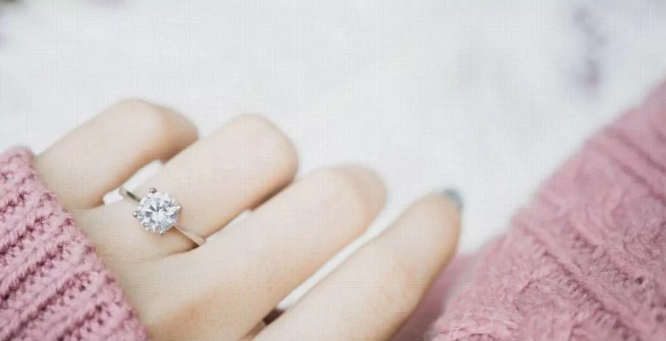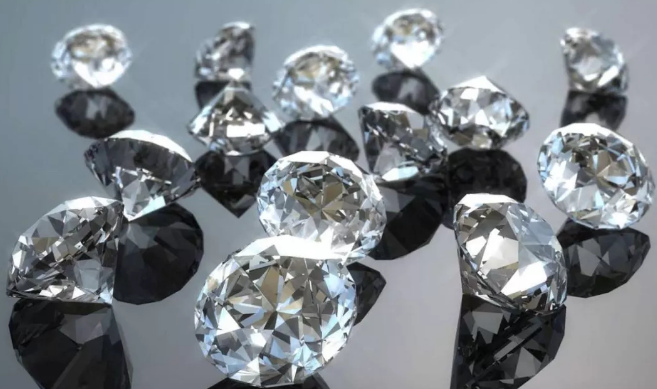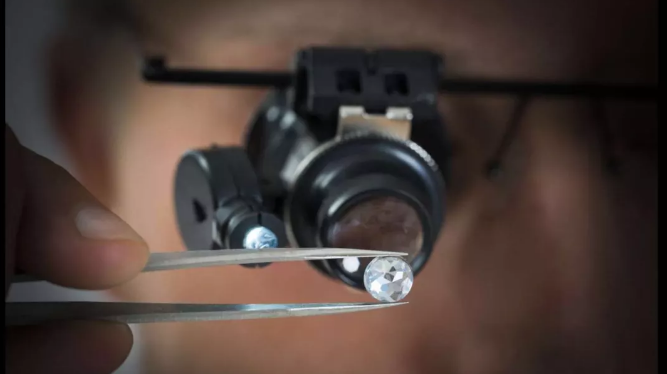De Beers shells Chinese synthetic diamonds! How to make huge profits after the monopoly breaks?
As we all know, diamonds are a profiteering industry. Although the rising price of the sky has made many people feel flashy, the diamond ring is still considered a necessity for the wedding. Today, China's huge production capacity is expected to break the monopoly of the diamond giants like De Beers on the international market. According to foreign media reports, the current production of artificial diamonds has sprung up everywhere in China, producing 160,000 to 200,000 carats of gem-quality diamonds per month. Industry insiders estimate that China's artificial diamond production has reached the top in the world. In April of this year, Swarovski took the lead in launching the jewellery collection of artificial diamonds. For younger self-conscious people, they believe that artificial diamonds can stop the tragedy of "blood diamonds". But international luxury goods and diamond giants can't sit still because these Chinese-made diamonds will break their monopoly. De Beers has invested tens of millions of dollars to develop methods for judging artificial diamonds and natural diamonds, and attacking these diamonds is a "fake gem." So is artificial diamonds really fake? Artificial diamonds were originally designed and synthesized for industrial applications such as oil drilling, and are chemically identical to the composition of natural diamonds. Most of the earliest synthetic artificial diamonds were yellow and brown, but in the past five years, technology has developed to produce crystal clear transparent colorless diamonds. Even the most experienced diamond traders in the world can't use the naked eye to slap other people's diamonds. It can be synthesized in the laboratory through high temperature and high pressure for several weeks. About half of China's diamond production today is synthetic diamonds, said Zu Endong, an expert from the Yunnan Jewelry Industry Association. At present, synthetic diamonds from the laboratory account for only 1% of the global sales of diamond raw materials, but with the advancement of technology, the diamonds produced in Chinese factories will have an unbeatable price advantage. Since there is no difference, people naturally tend to buy artificial diamonds that are not bloody and affordable. The industry estimates that by 2020, the market share of artificial diamonds may rise to 7.5% to 15%. How can these big companies like De Beers sit on the rapid rise of Chinese companies in the diamond market? "If you buy a very beautiful carat diamond ring and then find that the broken diamonds around it are not natural, you will be unhappy," said Jonathan Kendall, president of the De Beers International Diamond Grading Institute. Kendall formed a research team in London to fight against Chinese synthetic diamonds for sale as real diamonds. They launched a diamond verification machine that claims to distinguish between artificial diamonds and natural diamonds for up to $45,000. Chow Tai Fook, one of the world's largest jewelers, also quickly followed up, and the diamond-named “Climber Resume†with a serial number for each diamond they sold can be traced back to the place of origin and has promoted the value of “all naturalâ€. Some experts have jumped out to warn that artificial diamonds may break the wealthy people's fondness for diamonds. The price of diamonds is falling, everyone can afford it. How can consumers believe that diamonds can symbolize eternal, future value preservation and even value-added? What? For a long time, the high price and charm of diamonds have come from the assumption of “a eternal passâ€. In the past it symbolized marriage, and many born people also buy diamonds as an investment, just as the movie has repeatedly promoted "diamonds are women's best friends." But now, more and more synthetic diamonds, women will not regard the diamond ring as a necessity for the wedding, spend a lot of money to buy? It seems that China's huge production capacity will change an industry, and even "moving the wind and custom". Zinc Sulfate food grade is different from technical grade, it is produced by Zinc oxide and sulfuric acid, both food grade. It can be used in nutritional supplement medicines or fortifiers. Zinc Sulfate Zinc Sulfate Monohydrate, Zinc Sulfate Heptahydrate, Zinc Sulfate Food Additive, Zinc Sulfate Feed Grade Jiangsu Kolod Food Ingredients Co., Ltd. , https://www.kolodchem.com

